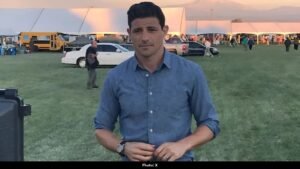Russian foreign ministry spokeswoman Maria Zakharova expressed concern on Wednesday regarding the threat of new strikes on Iran’s nuclear facilities. “We are worried about the stability in the region,” she emphasized, highlighting the need for caution.
Dialogue for a Nuclear Deal
Zakharova noted that a deal regarding Tehran’s nuclear program could still be achieved through dialogue. This comes in light of recent escalations, including an aerial attack launched by Israel on June 13, which intensified the conflict between the two nations.
Conflict Timeline and Casualties
The conflict lasted twelve days, resulting in casualties on both sides and culminating in a ceasefire agreement on June 24. “The situation necessitated immediate action to protect lives and prevent further escalation,” Zakharova stated.
US Involvement and Reactions
The United States also entered the fray, conducting airstrikes on Iranian facilities on June 22. President Donald Trump claimed key Iranian nuclear sites, including Fordo, had been “totally obliterated.”
However, Iran’s Supreme Leader Khamenei dismissed these statements, declaring, “The Islamic Republic won, and in retaliation dealt a severe slap to the face of America.”
Tsunami of Concerns
The tensions extended beyond military actions, as Iran’s atomic energy agency announced plans to continue operations at its nuclear sites. Following these developments, Iranian forces retaliated by targeting U.S. bases in Qatar on June 23, resulting in damage to the Al Udeid Air Base.
Continuing Dialogue Needed
Zakharova emphasized that addressing the threat of further strikes is crucial for resuming cooperation between Iran and the International Atomic Energy Agency (IAEA). “A commitment to a peaceful resolution is essential for all parties involved,” she added.
As the global community watches closely, both Russia and Iran are advocating for dialogue over aggression. Maintaining open lines of communication is essential to prevent further escalation in a region fraught with tension.




